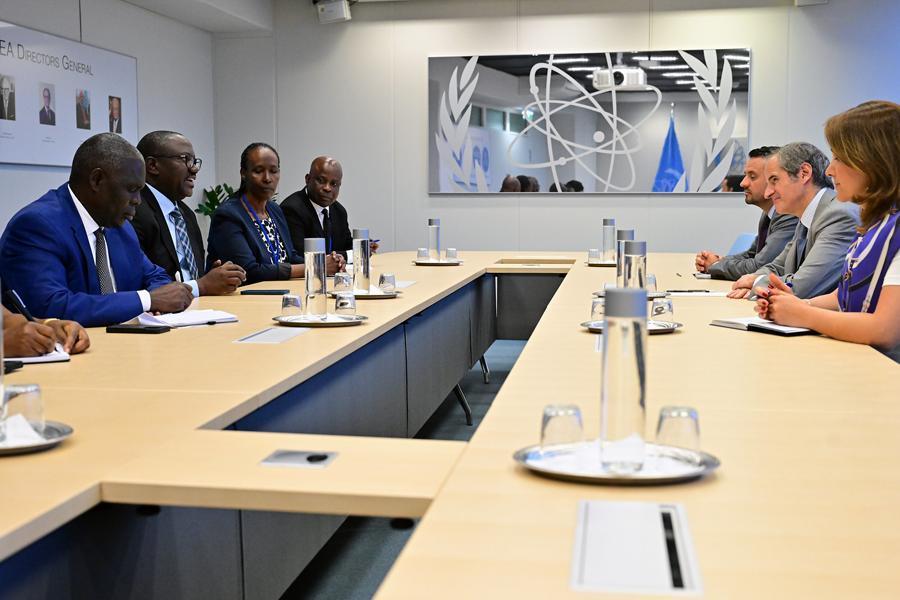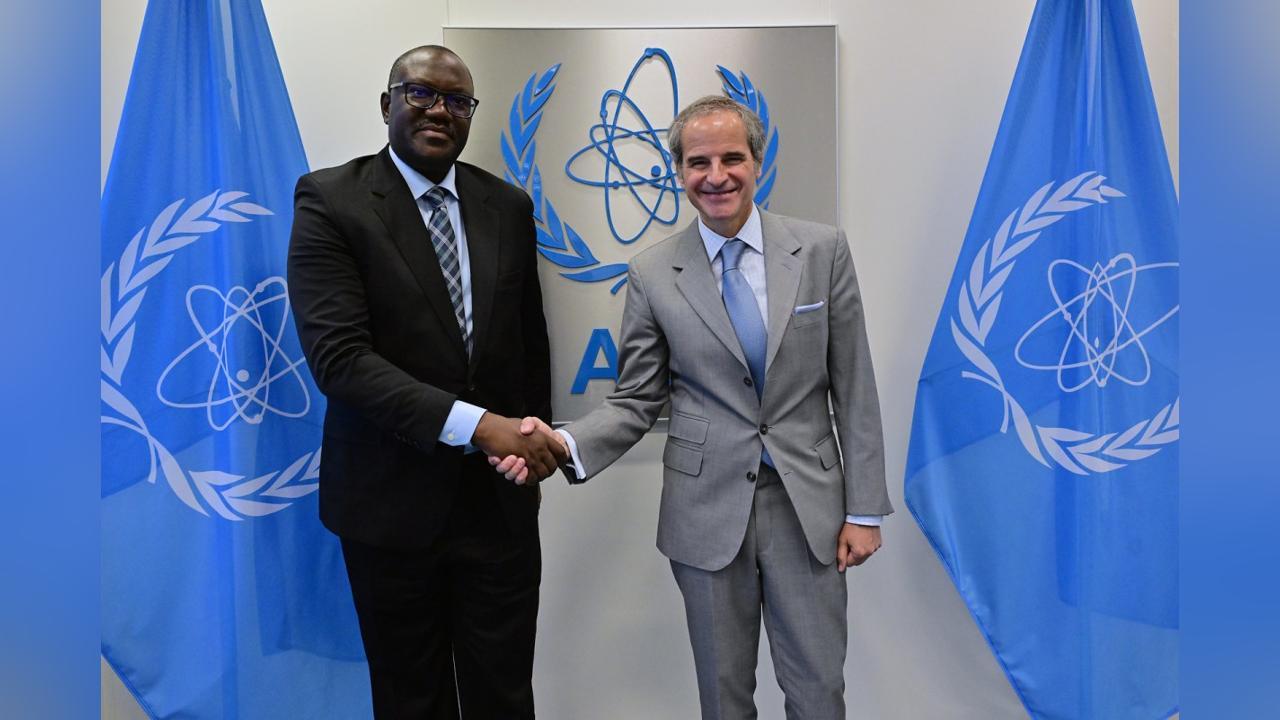By Faridah N Kulumba
Africa-Press – Uganda. The government of Uganda recently announced the official opening of a new diplomatic mission in Vienna, Austria, to strengthen partnership with the International Atomic Energy Agency (IAEA), as the country accelerates its ambitions to harness nuclear energy for domestic power generation. The news followed a high-level meeting on July 21, 2025, between Uganda’s Permanent Secretary for Foreign Affairs, Vincent Bagiire, and IAEA Director General Rafael Mariano Grossi, at the agency’s headquarters in Vienna.
The aim
Uganda’s Ministry of Foreign Affairs informed the IAEA chief that Uganda had “established a Mission in Vienna for ease of collaboration and enhanced effective coordination as Uganda develops its nuclear capability to generate power from domestically sourced uranium. Since Uganda and Austria established bilateral ties, the two countries’ diplomatic relations were managed through. Uganda’s Embassy in Berlin. The new mission in Vienna will not only enhance bilateral cooperation but also ensure Uganda has a direct voice in multilateral discussions concerning development, peace, and innovation. Uganda’s mission in Vienna will also serve as the country’s Permanent Mission to the United Nations and other International Organisations based in the Austrian capital.
The East African country opening the embassy in Vienna also aimed to bolster its global diplomatic and development presence in Austria. With intent to enhance bilateral ties and streamlining engagement with key international organisations headquartered in the city. Vienna hosts over 40 international organisations, including several United Nations agencies pivotal to Uganda’s development agenda. “We foresee closer working relations with the International Atomic Energy Agency (IAEA) for nuclear development, UNIDO for industrialization, UNODC for combating drugs and crime, and the UN Office for Outer Space Affairs (UNOOSA) for building Uganda’s space capabilities,” Mr. Bagiire said in Vienna. The decision to open the embassy was made in August 2023, in part to facilitate more effective coordination during Uganda’s chairmanship of the Non-Aligned Movement (NAM) from 2024 to 2027.
Strategic move

The decision to open a new mission comes amid ongoing government efforts to rationalize Uganda’s diplomatic footprint, with some embassies under scrutiny for underperformance and limited activity. Several missions abroad have been criticized in recent years for chronic underfunding, inadequate staffing, and weak diplomatic engagement. Despite this, the establishment of a mission in Vienna underscores Uganda’s determination to prioritize science, technology, and energy diplomacy, particularly with institutions vital to its national development agenda. Vienna hosts the headquarters of the IAEA, making it a key hub for countries seeking to expand peaceful uses of nuclear technology.
Expected operation
Vienna hosts the headquarters of the IAEA, making it a key hub for countries seeking to expand peaceful uses of nuclear technology.The new mission will act as a liaison point for technical cooperation, policy dialogue, and regulatory alignment between Uganda and the IAEA. It will also facilitate training, safety evaluations, and the mobilization of expertise as Uganda works to build its nuclear infrastructure. Uganda’s nuclear energy plans have gained momentum in recent years following the discovery of substantial uranium reserves and growing demand for reliable, affordable electricity to drive industrialization. Uganda’s government has positioned nuclear power as a long-term solution to diversify the national energy mix and reduce dependence on hydropower.
The two nation’s collaboration
Austria has been a significant development partner to Uganda since the 1980s, with its development aid focusing on key sectors like water and sanitation, as well as justice and rights. The Austrian Development Agency (ADA) works in close cooperation with the Ugandan government and civil society organizations to support Uganda’s national development priorities. During the bilateral meetings between Uganda and Austria government officials held discussions on a wide range of topics, including development cooperation, Uganda’s refugee response (currently hosting over 1.6 million refugees), regional peace and security, and professional labour migration frameworks. A major focus of the visit was Uganda’s expanding partnership with the IAEA. Mr. Bagiire IAEA Director General Grossi reviewed ongoing and prospective collaboration in nuclear energy and health care.
Uganda has received support in the form of radiotherapy equipment for the national referral Hospital, institutional development for national labs, and human capacity training across sectors. They also explored Uganda’s participation in two IAEA-FAO flagship programmes including:
Atoms4Food: Leveraging nuclear techniques to increase agricultural productivity, reduce food waste, and adapt to climate change. And Rays of Hope: Aimed at improving access to radiotherapy services for cancer care. Mr. Bagiire also held discussions with Mr. Yuko Yasunaga, United Nations Industrial Development Organization (UNIDO’s) Deputy Director General, where he lauded the organisation’s role in supporting Uganda’s industrial transformation. UNIDO is currently aiding the development of agricultural value chains, particularly in the coffee sector, and is helping Uganda adapt to climate change through mechanisation and green technology support.
Uganda is working closely with UNIDO to launch a Programme for Country Partnership (PCP) in 2026—a flagship initiative expected to align Uganda’s industrial development goals with international expertise and investment. “We’ve asked UNIDO to consider partnering with Uganda’s Parish Development Model, which focuses on supporting SMEs and household income generation at the grassroots level,” Mr. Bagiire noted. Uganda and Austria share a robust and multifaceted relationship primarily characterized by development cooperation, diplomatic engagements, and cultural exchange, with Austria’s development aid and support for Uganda’s national development plans being a cornerstone of their bilateral ties since the 1980s.
For More News And Analysis About Uganda Follow Africa-Press






